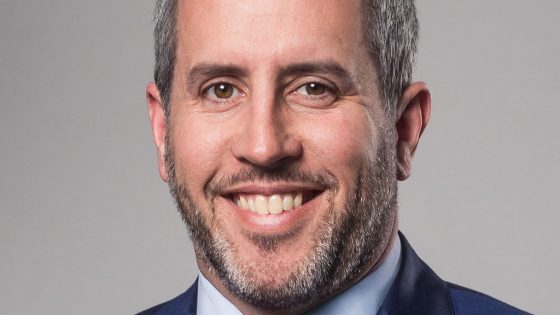He may have spent 13 years running Laing O’Rourke’s operations in Australia, but Cathal O’Rourke’s accent does not have an Aussie twang. He has been at the helm of the UK’s biggest private contractor since July, when he took over from his father, Ray O’Rourke, who founded the firm back in 1977.
Construction News sat down with him for the first time since that big transition took place.
There is a “quid pro quo” moving from Australia to the UK, he said, following the firm’s successful return to profit. When CN asked what lessons or benefits he could bring from Australia to the UK, he smiled.
“It’s funny,” O’Rourke said. “The Australian markets are often looking back here to try and learn as well.”
He characterised his approach to taking over the contractor as “evolution rather than revolution”.
“I don’t think I have brought a single new system into play,” he said. “I want us to maximize the opportunity we have inside the systems that we have today, which are really robust and really strong.”
But he also reflected on the differences between the Australian and UK sectors.
Returning to a non-federal country means not having to work in multiple regulatory systems all the time, for instance.
“A lot of our work in Australia was on government contracts, and you’ve got the different states,” he said.
“You’re trying to get what we call a harmonised approach – we’d have standards across each of the different states, and you’re trying to get them to be the same across the whole country. So that was a challenge.”
But Australia’s construction industry has already confronted the shared risk discussion, he said, which he predicted will soon come to the UK.
“The opportunity for more collaboration, shared outcomes and shared risk was a journey we went on in Australia that I see playing out in parts of the market here,” O’Rourke said.
In particular, he pointed to sharing the risk of inflation between the client and contractor.
“We can’t control [inflation], and the risks are just proportionate. So I think that’s where the conversation should be had, and the risk should be shared.”
MMC commitment
O’Rourke remained steadfast on the contractor’s focus on offsite construction, arguing that it “provides better certainty and outcomes on projects for customers”.
“When you look at the challenges that we’re facing in the industry, against carbon, against an ageing workforce, all of those things – we have to come up with ways to do things differently, because the workload, if anything, is lifting,” he said.
He also argued that the automation involved in modern methods of construction (MMC) could drive investment both from banks and private equity, as happens in manufacturing.
“At the moment, construction isn’t seen as a very appealing investment opportunity, whether that’s through equity or from banks. So you’ve got to look at how you deliver this [investment], and you’ve got to look at the system holistically to make sure that you actually go after it, because everybody wants the price at the back end, which is more innovative, automated and even driving that cost benefit, but people aren’t prepared to see the bit of the front end that enables it, so that’s what we’re driving towards.”
O’Rourke acknowledged that the 60 redundancies made at the organisation’s offsite factory in Nottinghamshire earlier this year showed it faced a “volatile workflow” at the factory.
But he said there was an “extensive rehire” the next month, when demand peaked again. He also accepted that was not ideal in terms of costs and efficiencies.
“That’s where we need to be smarter with the whole of the programme, especially government work. That’s an opportunity.”
Calling for PFI changes
O’Rourke further echoed his firm’s support for public-private agreements to boost funding for the sector, as the public purse faces a financial squeeze.
He called for innovation in public-private agreements to boost investment, warning that the current model “doesn’t achieve the right risk balance”.
“I know that investors will want to come in, they want to be guaranteed their returns. I think that’s driven the risk too far into the contracting side,” he said.
Instead, he called for a way to “bridge that middle piece”, which could involve the government taking on some of the risk – as in Australia, where the government builds projects taking on the full risk, and then sells to the private sector.
The sector has already been experiencing a high volume of administrations, with experts warning in July that they are set to remain high until the impact of the government’s infrastructure plans are felt.
O’Rourke warned that changing the PFI model is urgent to keep more contractors interested in the PFI model, and to make it financially sustainable for them.
“That has to be resolved, or we’re going to end up with more risk transfer onto contractors, which they can’t bear financially,” he added.

